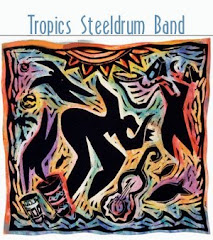 Just how much property does Texan billionaire Sir Allen Stanford own in Antigua and Barbuda?
Just how much property does Texan billionaire Sir Allen Stanford own in Antigua and Barbuda?The government thought it had knowledge of the full extent of his assets but now it may not be so sure.
The government says it has discovered that an additional 151 acres of land part-owned by Mr Stanford was not included in a resolution taken to Parliament at the end of February.
When Parliament approved the compulsory acquisition of about 250 acres of lands owned by Mr Stanford, the lands comprising two off-shore islands were not part of the package.
The authorities said they were not aware that the financier, who is accused of a $8bn fraud in the US, had bought the majority shares in an international business corporation which owned the islands.
Malaysian owners
Mr Stanford is said to have brought the assets of Guiana Island and Pelican Island, both off the country's north-east coast, for US$68 million and $17m respectively, last year.
The lands were previously owned by Malaysian investor Dato Tan Kay Hock who had purchased the property in the late 1990s but failed to develop a promised major tourism investment.
After coming to power in 2004, the Baldwin Spencer administration placed a caution on the lands and the matter is before the courts.
An international arbitration handed Dato Tan ownership but the government has appealed.
Both houses of Antigua and Barbuda's parliament approved the acquisition of the land before a US court appointed receiver, Ralph Janvey, moved to seize it.
The US Securities and Exchange Commission (SEC) has filed a civil complaint against Mr Stanford, two associates and three of his companies.
They are alleging that they misled investors who bought certificates of deposit from the bank.
A judge overseeing the civil fraud case authorised Mr Janvey, a Texas lawyer, to freeze the assets of the billionaire and his main companies as regulators pore over their finances.
That includes his businesses in Antigua and Barbuda, where Mr Stanford held citizenship.
Antiguan interests
His businesses there include two restaurants, a newspaper, cricket grounds, a development company, a three-branch local bank and the headquarters of his offshore bank.
Together they employ some 800 people making Mr Stanford the island's largest private employer.
According to 2008 United Nations figures, the total population of Antigua and Barbuda is 83,000.
"We have to give ourselves a bargaining chip, so when the receivers come they have to deal with the government of Antigua and Barbuda," Prime Minister Baldwin Spencer said after the House of Representatives approved the seizure.
Opposition parliamentarians abstained from the vote in both houses.
The opposition had said the government should wait for more evidence of wrongdoing, and to see whether US authorities would file criminal charges against Mr Stanford.
--BBC Caribbean.com



